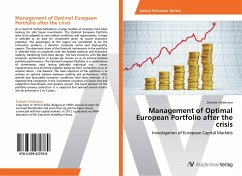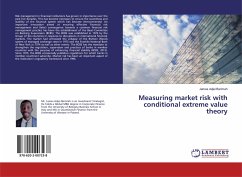This book shows that, given a simple linear model for trading-costs, portfolios with short holding periods (weekly or biweekly) cannot outperform the underlying index (S&P 100). There is empirical evidence that monthly restructuring leads to the optimal trade-off between superior performance and higher trading-costs. Additionally, it is shown that linear forecasting is not a useful tool for portfolio optimization. The empirical analysis points out that a portfolio with forecasts can almost never outperform a portfolio without forecasts in the long-run. In the short-run, however, it might be possible, but only in a stable environment where no jumps in the stock price occur.
Bitte wählen Sie Ihr Anliegen aus.
Rechnungen
Retourenschein anfordern
Bestellstatus
Storno








